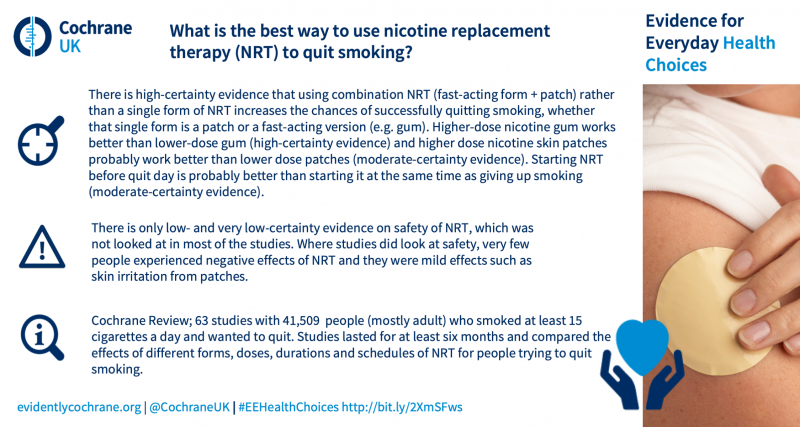
Evidence for Everyday Health Choices (#EEHealthChoices) is a series (launched February 2016) for anyone wanting trustworthy health evidence to help them make choices. This information can be hard to access. We’ll do lots of the work for you, giving you short summaries and letting you know where you can find out more if you want to. This isn’t a new approach for us, but creating a specific series for everyday health choices should make it quicker and easier for you to find what you need. We’ve done the same for nurses, midwives, and allied health professionals, with a series for each.
The core of Evidence for Everyday Health Choices will be blogs and blogshots (images with key information and a link to where you can read more). You can find our blogshots on Twitter and in blogshot archive, where you can download and share them. We’ll include guest blogs and invite people for whom the evidence is relevant to comment on it and share their experiences.
The hashtag
Blogshots
Blogshots are a way of giving information in an image that can be shared on social media, like infographics. Here's an example:

Evidently Cochrane blogs
You’ll find Evidently Cochrane blogs for this series in the Evidence for Everyday Health Choices category.
Find out more about Cochrane, Evidence-Based Medicine & the real evidence behind the headlines
Narrated by: Cochrane UK'S Senior Fellow in General Practice, Lynda Ware
Video made by: Stuart Hobbs
Slides by: Lynda Ware and Holly Millward
